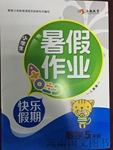题目内容
A)根据下面短文内容,在文章后小题的空格里填入适当的词语,
注意:每空一词。
Different cultures make different families. For example, there are differences in the way Chinese and Americans raise children.
First, Chinese and American families have different attitudes towards independence (独立). Each Chinese child has been considered to be the apple of parents’ eyes. It is not surprising to see Chinese parents always helping their children with getting dressed, having meals, bathing, and other things. American parents, on the other hand, teach their children how to do things alone from childhood.
Second, most Chinese parents often make their children have extra classes, such as piano, drawing, or singing lessons. Parents want their children to develop in an all-round way and be better students than other children. The problem is that their children may not be interested in these classes. American parents try to respect (尊重) their children’s interests and usually don’t make them do what they don’t like.
Third, there is a difference in the way parents in China and American treat mistakes that children make. Many Chinese people believe in the saying, “Spare the rod, spoil the child (不打不成器).” When Chinese parents see their children make mistakes, they often get very angry, some even hit them instead of making them realize their mistakes. This affects the children’s growth and the forming of their character, and also makes the generations gap (代沟) wide. American parents think it is common for people to make mistakes because mistakes are a part of life. They often say, “It’s OK to make mistakes. Making mistakes helps you learn.” They help their children deal with mistakes by giving them ideas about how to turn mistakes into learning opportunities (机会).
Families in China and America are quite different, and one way may seem better than the other, but it is better to think about whether the parents fit the family or not instead of talking about which one is wrong or right.
注意:每空一词。
Different cultures make different families. For example, there are differences in the way Chinese and Americans raise children.
First, Chinese and American families have different attitudes towards independence (独立). Each Chinese child has been considered to be the apple of parents’ eyes. It is not surprising to see Chinese parents always helping their children with getting dressed, having meals, bathing, and other things. American parents, on the other hand, teach their children how to do things alone from childhood.
Second, most Chinese parents often make their children have extra classes, such as piano, drawing, or singing lessons. Parents want their children to develop in an all-round way and be better students than other children. The problem is that their children may not be interested in these classes. American parents try to respect (尊重) their children’s interests and usually don’t make them do what they don’t like.
Third, there is a difference in the way parents in China and American treat mistakes that children make. Many Chinese people believe in the saying, “Spare the rod, spoil the child (不打不成器).” When Chinese parents see their children make mistakes, they often get very angry, some even hit them instead of making them realize their mistakes. This affects the children’s growth and the forming of their character, and also makes the generations gap (代沟) wide. American parents think it is common for people to make mistakes because mistakes are a part of life. They often say, “It’s OK to make mistakes. Making mistakes helps you learn.” They help their children deal with mistakes by giving them ideas about how to turn mistakes into learning opportunities (机会).
Families in China and America are quite different, and one way may seem better than the other, but it is better to think about whether the parents fit the family or not instead of talking about which one is wrong or right.
| Comparisons | Differences |
| Different attitudes towards independence | Chinese parents always try to do almost 1 for their children. |
| American parents try to let their children 2 with things on their own from childhood. | |
| Different ways of treating children’s 3 . | Chinese children are often made to go to 4 classes. |
| American children are usually encouraged to do what they 5 . | |
| Different ways of treating children’s mistakes | Chinese parents are 6 about children’s mistakes and often 7 them. |
| American parents think everyone can make mistakes and they are a good 8 to learn. | |
| The author’s 9 | |
| Parenting styles should depend on what is 10 for the family. | |
小题1:everything
小题2: deal
小题3:interests
小题4: extra
小题5:like/love/want
小题6:angry
小题7:hit
小题8:way
小题9:idea(s)/opinion(s)
小题10: better
小题1:从第二段的句子:It is not surprising to see Chinese parents always helping their children with getting dressed, having meals, bathing, and other things.可知填:everything
小题2:从第二段的句子:American parents, on the other hand, teach their children how to do things alone from childhood.可知填:deal
小题3:从第三段的句子:American parents try to respect (尊重) their children’s interests and usually don’t make them do what they don’t like.可知填:interests
小题4:从第三段的句子:most Chinese parents often make their children have extra classes,可知填: extra
小题5:从第三段的句子:American parents try to respect (尊重) their children’s interests and usually don’t make them do what they don’t like.可知填:like/love/want
小题6:从第四段的句子:they often get very angry,可知填:angry
小题7:从第四段的句子:some even hit them instead of making them realize their mistakes.可知填:hit
小题8:从第四段的句子:Making mistakes helps you learn.”可知填:way
小题9:从第五段的句子:可知这是作者的观点,填:idea(s)/opinion(s)
小题10:从第五段的句子:but it is better to think about whether the parents fit the family or可知填: better

练习册系列答案
 永乾教育寒假作业快乐假期延边人民出版社系列答案
永乾教育寒假作业快乐假期延边人民出版社系列答案
相关题目
